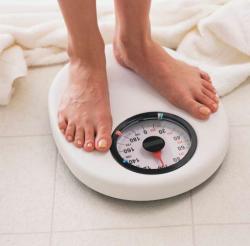
Hypertension, known as the silent killer, often goes undetected or undiagnosed until it is too late.
Its symptoms, which can include fatigue, nausea, shortness of breath, headaches, excessive sweating and vision problems, often go unnoticed and disregarded, or incorrectly linked to other conditions.
More than 50 million Americans suffer from hypertension or high blood pressure — making it No. 13 on the list of fatal diseases. Another estimated 15 million Americans also have hypertension, but it goes undiagnosed.
Of the millions of Americans with hypertension, African-Americans are most at risk. Thirty-five percent of African-Americans have hypertension, which accounts for 20 percent of the African-American deaths in the United States — twice the percentage of deaths among whites from hypertension, according to the National Center for Health Statistics.
“One African-American dies as a result of high blood pressure every hour in this country,” said University of Maryland Medical Center cardiologist Elijah Saunders, M.D., in an article published by the Maryland Heart Center. “Blacks suffer from heart and kidney disease at alarmingly high rates, both of which are adversely affected by high blood pressure. In fact, blacks make up about 30 percent of those on dialysis due to kidney failure.”
Why are African-Americans more susceptible to hypertension?
According to Michael D. Brown, associate professor of kinesiology at Temple University’s College of Health Professions, an increase in the sodium-retaining hormone called aldosterone in African-Americans could be the likely culprit.
Aldosterone influences the kidney’s regulation of blood pressure, but too much of the hormone causes the kidneys to retain salt. Retained salt leads to high blood pressure, and many African-Americans with hypertension have developed a salt-sensitive form.
 "The kidneys help to regulate blood pressure by changing the levels of salt and water in our body,” Brown said. “Sometimes the kidneys reset at a higher blood pressure level if it has retained too much salt.”
"The kidneys help to regulate blood pressure by changing the levels of salt and water in our body,” Brown said. “Sometimes the kidneys reset at a higher blood pressure level if it has retained too much salt.”
Researchers from the Stanford University School of Medicine, Loyola University Medical Center, and Washington University School of Medicine link genetics as the primary cause of hypertension among Americans.
“It would not be surprising if hypertension involved dozens of genes,” said Dabeeru C. Rao, Ph.D., director of the Division of Biostatistics. “Unfortunately, in the past there have been conflicting reports about genes linked to the condition.”
Studying 269 genetic markers across the genome, researchers found that African-Americans with high blood pressure were more likely to have a distribution of markers in chromosomes 6 and 21.
“When a specific gene variant associated with hypertension is identified, physicians will be able to test patients for their risk of hypertension to head it off early,” Rao says. “In addition, research institutions and pharmaceutical companies can develop new drugs that compensate for the effect of that gene.”
While medications help manage and prevent hypertension, people can take several steps all to prevent the disease.
Maintaining a healthy weight, exercise, a healthy diet, avoiding foods high in salt or high sodium and avoiding excessive alcohol usage are ways to fight hypertension. The NHLBI suggests maintaining a diet rich in fruits, vegetables, grains, and low-fat dairy foods. They warn to limit your daily sodium (salt) intake to 2,000 milligrams or lower if you already have hypertension.
The NHLBI suggests at least 30 minutes of moderate activity during most days of the week, while warning that men should limit alcohol consumption to the equivalent of two 12-ounce beers, and women should drink no more than a single serving on a given day because of metabolic differences that make women more susceptible to alcoholic liver disease. They also suggest limiting caffeine intake.
 In addition, while science revealed a genetic connection to hypertension in African-Americans, the main reason behind high blood pressure could be self-induced. According to the Centers for Disease Control and Prevention, the numbers show that 60 percent of African-American men and 78 percent of African-American women are identified as overweight, with another 28 percent of men and 50.8 percent of women considered as obese.
In addition, while science revealed a genetic connection to hypertension in African-Americans, the main reason behind high blood pressure could be self-induced. According to the Centers for Disease Control and Prevention, the numbers show that 60 percent of African-American men and 78 percent of African-American women are identified as overweight, with another 28 percent of men and 50.8 percent of women considered as obese.
Studies show that the general reasons behind the higher rates of overweight and obesity in African-Americans are culture and environment. These studies suggest that the African-American culture is more accepting of over-eating and larger body images, and African-American are more likely to eat food that is available, convenient, and cost effective.
However, the African-American community is not alone. As Asian-Americans and Mexican-Americans abandon their traditional low fat, high-fiber diets for typical American fast food, more are diagnosed with high blood pressure.
Whether it is genetic, cultural, environment or a combination of things one thing is certain about hypertension, is a problem all people need to face.
